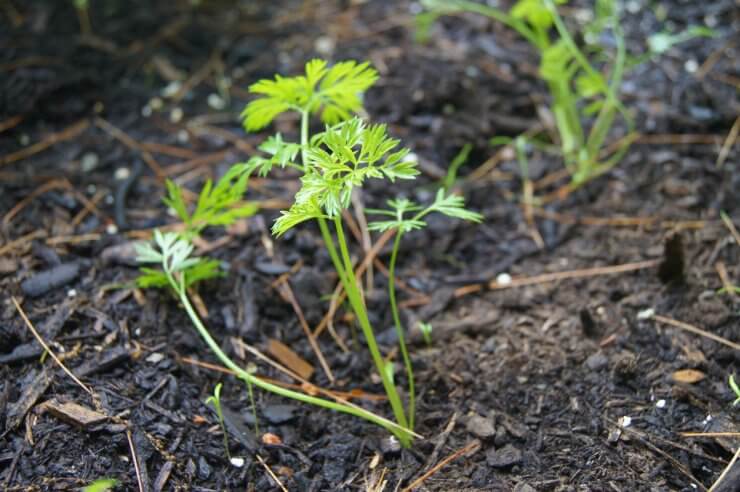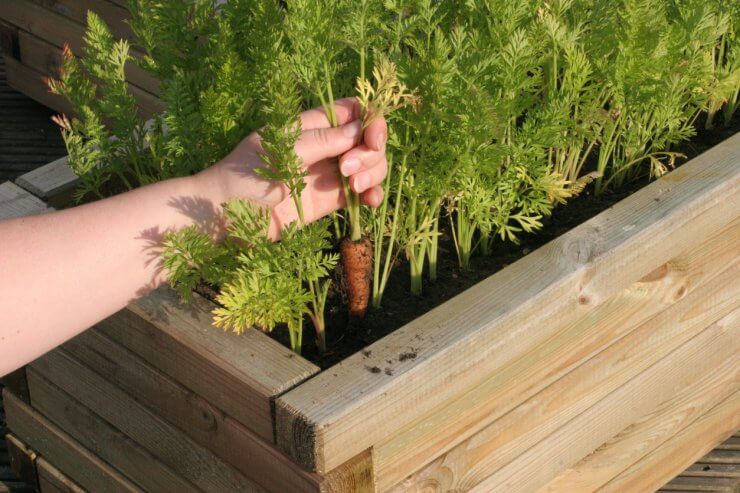
Young carrot plant growing in the garden
Carrots like a full day of sun—six to eight hours. They’ll do OK in partial shade, too, but the more sun, the better.
You want soil that’s well-drained and rich in organic matter to a depth of about a foot. Sandy loam soil is best. Do your plants a favor and be sure to mix in some aged compost before you plant them.
In general, carrots prefer a soil pH of 6.0 to 7.0. Take out the guesswork and get your soil tested before you start planting. You’ll save yourself a lot of time and aggravation, and your carrots will thank you by growing instead of languishing. Your local extension center will have information on how to get your soil tested. For a little bit of preparation work, you can get a lot of information about the composition of your soil.
When it comes time to plant your carrots, almost anywhere with the right sun and soil will do. While most carrots grow best in USDA Plant Hardiness Zones 3 to 10, consider growing a miniature variety that matures early and doesn’t need a lot of space.
The recipe for healthy carrots is sunlight, well-drained soil, and mild temperatures. If you can provide those three things, you can grow carrots just about anywhere.
Raised beds and open ground

Carrots growing on a patio in a raised garden bed
A raised garden bed or planter is an excellent option for growing carrots if you don’t have soil that’s ideal for carrots (heavy clay soil, for example). Raised beds also help with drainage, which is essential for healthy plants. You can even buy raised beds or build one yourself to fit your space. Planters should have holes in the bottom of the container and a drip tray underneath to guard against overwatering.
Watering and weeding will be easier if you have your carrots in a raised bed or planter. It’s a good alternative to growing in open land. And if you fill a raised bed with packaged garden soil, you know you’re providing a cleaner and healthier environment for your plants from the outset.
Packaged garden soil means less weeding than you’d have from digging a hole in the ground; and with a raised bed or container, there’s less bending down to do your weeding!
Carrots are easygoing plants, and they’ll grow well in open ground—as long as they have plenty of sunshine, good drainage, and the right pH (6.0 to 7.0). You can plant a new row every couple of weeks for a continuous harvest. And if you miss spring planting, you can plant a fall crop in late summer—as long as it isn’t too hot. Above 80 degrees F, carrot seeds won’t germinate. Their germination range is 40 to 75 degrees F.
Since carrots are a cool-weather crop, you do have that option of spring and fall plantings if you live in a mild zone. Succession planting is a great idea if you want more than just one harvest.
How do you grow your carrots—in open land, in raised beds, or in containers? Why do you prefer your method? Please tell us your tips and tricks for growing great carrots!


 Previous
Previous


In a raised bed is 12″ height good enough for depth of soil